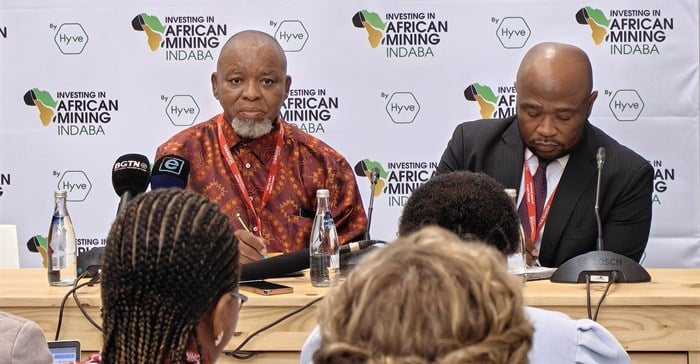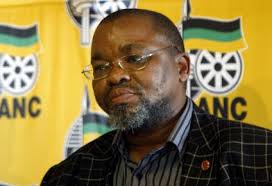The Minerals Council of South Africa has reaffirmed its commitment to work alongside Minister Gwede Mantashe to unlock the full potential of the mining industry.
The recent reappointment of Mantashe as the Minister of Mineral and Petroleum Resources ensures a continuation of the productive relationship that has been cultivated since his initial appointment in 2018.
The council also expressed its warm welcome to Judith Nemadzinga-Tshabalala in her new role as Deputy Minister of the Department, calling her transition from the position of Deputy Minister of Water and Sanitation “a reflection of President Cyril Ramaphosa’s significant cabinet reshuffle, aimed at mirroring the electorate’s will in the May national elections.”
Kgosientsho Ramokgopa’s appointment as the Minister of Electricity and Energy was also acknowledged in the statement.

Gwede Mantashe has been given the mineral resources portfolio for another term.
A new chapter
“The division of the minerals and energy portfolios will enable Minister Mantashe to concentrate on creating a conducive legislative environment to stimulate the growth of the mining industry by promoting investments in exploration, new mine development, and existing operations,” states Mzila Mthenjane, CEO of the Minerals Council.
There is a generally optimistic tone about the continuity provided by Ramaphosa through the reappointment of Mantashe.
“This allows us to persist and elevate our engagements to create an environment that enables the shared vision of a safe, modern, transformed, and investment-friendly mining industry,” says Nombasa Tsengwa, the newly elected and second female president of the Minerals Council.
“This will help to fully harness the benefits of South Africa’s mineral endowment for all our citizens.”
General partnership
The Council is set to join forces with political parties, businesses, labour, civil society, and other stakeholders to address South Africa’s critical challenges in the National Dialogue announced by Ramaphosa.
Its leadership and members are ready to play a “significant role” in tackling the crises in energy, transport logistics, crime and corruption, with notable successes and improvements emerging in the country’s electricity supply.
“We are heartened by President Ramaphosa’s pledge that the incoming government will prioritise rapid, inclusive, and sustainable economic growth and the creation of a more equitable society,” says Mthenjane.
“This will help to generate employment and restore the dignity of many South Africans by addressing poverty and inequality. We look forward to collaborating with the National Executive to tackle the challenges and seize the opportunities present in our economy and society.”
There is, however, a need to prioritise the role of mining in revitalising the economy as a matter of urgency.
“It is one of the key drivers of South Africa’s economy through its uncontested multiplier effects, which can be realised by creating an enabling regulatory and operating environment,” he adds.
A priority for the mining industry in the seventh administration is the need to harmonise the regulatory requirements across various departments to expedite the processing of rights to explore, build a mine, or expand an existing operation.
This necessitates the Department of Mineral and Petroleum Resources to lead and coordinate among the Departments of Water, Agriculture, Forestry, Fisheries, and Environment, among others.
Equally important to the council is the implementation of the mining cadastre, a digital platform designed to manage mineral rights applications and licences transparently and efficiently.








